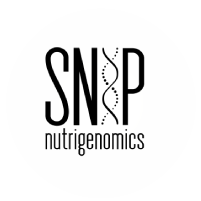Insoluble fiber is a type of dietary fiber that passes through the digestive system without being broken down or absorbed. Research has shown that insoluble fiber can provide numerous health benefits, such as reducing the risk of diabetes, heart disease, and high cholesterol. In this blog post, we’ll explore some of the best sources of insoluble fiber and discuss why it’s important to include these foods in your diet.
Benefits Of Insoluble Fiber
Insoluble fiber plays an important role in maintaining a healthy digestive system. It helps to keep your gut moving smoothly by adding bulk to your stool and keeping things moving along at a steady pace. Additionally, it helps to reduce constipation and bloating, both of which can be uncomfortable side effects of consuming too much processed food. A diet rich in insoluble fiber has also been linked to lower risks for diabetes, heart disease, and high cholesterol levels.
Foods High In Insoluble Fiber
One of the best sources of insoluble fiber is whole grains like brown rice and wheat bran. These grains are also packed with vitamins, minerals, and essential fatty acids that help support overall health. Other excellent sources include nuts and seeds such as almonds, walnuts, sunflower seeds, flaxseeds—all of which contain beneficial amounts of insoluble fiber as well as other essential nutrients like protein and healthy fats. Fruits such as apples and pears are also great sources of insoluble fiber. Eating these fruits with skin on will ensure you get maximum benefits from them! Vegetables like broccoli, cauliflower, kale, spinach are also excellent sources.
Legumes such as black beans and chickpeas are fantastic sources for those looking for more plant-based sources of insoluble fiber—they’re also packed with protein! Finally, dried fruits such as apricots and raisins make great snack options when you’re on the go—they provide plenty of soluble fibers along with antioxidants that help keep your body healthy.
Feed Your DNA
Insoluble fiber is good for everyone, but particularly so for people with FTO and FUT2 mutations. If you have a variant on these and other gut-affecting genes, be sure to include plenty of the above recommendations in your daily routine. Not sure if your genetics indicate extra insoluble fiber may benefit you? Take our DNA test today and discover how to best feed your DNA.
In a Nutshell
Eating foods high in insoluble fiber is an easy way to increase your intake while reaping numerous health benefits at the same time. Whole grains like brown rice are an excellent source as they provide both soluble and insoluble fiber. Nuts and seeds like almonds or walnuts are another great option—they’re high in beneficial fats too! Legumes like black beans or chickpeas are more great plant-based options—just don’t forget about dried fruits like apricots or raisins for quick snacks on-the-go. For biohackers looking to increase their intake of dietary insoluble fiber – these are all fantastic options. Not only do they provide essential vitamins and minerals our bodies need but they also give us many health benefits which make them worth incorporating into our diets regularly.


